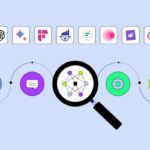
“Ditch The 9-5- How The Gig Economy Is Redefining Success”
The gig economy is redefining business models, pushing companies to adapt to freelance dynamics. From cost-saving benefits to agility, businesses must evolve or risk being left behind. Learn how to integrate freelancers into your strategy, optimize workflows, and stay ahead in this flexible work revolution.
Table of Contents
- Introduction: The Gig Economy Revolution
- The Rise of Freelancers: Why Businesses are Adapting
- Key Ways the Gig Economy is Influencing Business Models
- Cost Efficiency and Scalability
- Access to a Global Talent Pool
- Agile Workflows and Flexibility
- Reduced Administrative Overhead
- Challenges of Embracing the Gig Economy
- How Businesses Can Adapt to Freelance Dynamics
- Conclusion: Future-Proofing Your Business with the Gig Economy
Introduction: The Gig Economy Revolution

The traditional 9-to-5 job structure is evolving rapidly, with the gig economy leading the charge. Businesses are shifting from rigid employment models to flexible, on-demand talent solutions. Whether it’s hiring freelance graphic designers, content creators, or marketing strategists, companies are leveraging independent professionals to drive growth and efficiency.
But what does this mean for business models? How can organizations adapt to freelance dynamics without compromising productivity or brand consistency? Let’s explore the transformative impact of the gig economy and how businesses can stay competitive in this new era of work.
The Rise of Freelancers: Why Businesses are Adapting

Freelancers are no longer just a temporary fix for businesses; they are becoming an integral part of operational strategies. The shift is driven by several factors:
Technological Advancements:

Digital platforms like Upwork, Fiverr, and LinkedIn make it easier than ever to connect businesses with skilled freelancers.
Changing Workforce Preferences:

Many professionals now prefer freelance work for the flexibility, autonomy, and earning potential it offers.
Cost Considerations:

Companies save on overhead costs by hiring freelancers instead of full-time employees.
With these changes, businesses must rethink their traditional hiring and management approaches to stay relevant in a freelance-driven economy.
Key Ways the Gig Economy is Influencing Business Models

1. Cost Efficiency and Scalability
One of the biggest advantages of the gig economy is cost efficiency. Companies no longer need to pay for office space, benefits, or long-term salaries when they can hire on-demand talent for specific projects.
- Startups and small businesses can scale operations without huge investments.
- Large corporations can cut costs by outsourcing specialized work to freelancers instead of hiring in-house teams.
This shift allows businesses to optimize budgets while maintaining high-quality output.
2. Access to a Global Talent Pool
With the rise of remote work, companies are no longer restricted to local hiring. The gig economy enables businesses to tap into a diverse, global talent pool, bringing in expertise from different regions.
- Need a social media strategist from New York? A web developer from India? A virtual assistant from the Philippines? The gig economy makes it possible.
- This access enhances innovation and brings fresh perspectives to business operations.
By leveraging global talent, companies can enhance their competitive edge and cater to a wider market.
3. Agile Workflows and Flexibility
Freelancers allow businesses to remain agile. Instead of maintaining a static team, companies can hire professionals based on project needs, ensuring a more dynamic workflow.
- Marketing agencies can scale up during peak seasons and downsize when demand decreases.
- Businesses can test new strategies without committing to long-term hires.
This flexibility helps companies adapt quickly to market trends and consumer demands.
4. Reduced Administrative Overhead
Traditional hiring involves complex HR processes, payroll management, and compliance requirements. With freelancers, businesses reduce these administrative burdens:
- No long-term contracts or legal obligations.
- Streamlined payment processing through freelance platforms.
- Fewer compliance headaches compared to full-time employment regulations.
This efficiency allows companies to focus on core business growth rather than administrative hassles.
Challenges of Embracing the Gig Economy
While the gig economy offers many benefits, it also presents challenges that businesses must navigate:
- Quality Control: Ensuring consistent quality can be challenging when working with multiple freelancers.
- Communication Barriers: Remote freelancers may work across different time zones, making collaboration tricky.
- Data Security Risks: Outsourcing work to freelancers increases the risk of sensitive information leaks.
Despite these challenges, businesses that implement strategic freelance management solutions can maximize the benefits while minimizing risks.
How Businesses Can Adapt to Freelance Dynamics

To successfully integrate freelancers into business models, companies should adopt a structured approach:
1. Define Clear Project Scopes
Set clear expectations regarding deliverables, deadlines, and quality standards to ensure smooth collaboration.
2. Leverage Freelance Platforms
Use trusted platforms like Upwork, Freelancer, and Fiverr to find vetted professionals with verified skills.
3. Maintain a Talent Pool
Build relationships with reliable freelancers to create a go-to list for future projects.
4. Implement Project Management Tools
Use tools like Trello, Slack, and Asana to streamline communication and workflow management.
5. Protect Intellectual Property
Sign non-disclosure agreements (NDAs) and use secure file-sharing platforms to protect sensitive business information.
By adopting these best practices, businesses can create a seamless freelance ecosystem that boosts productivity and efficiency.
Conclusion: Future-Proofing Your Business with the Gig Economy

The gig economy is not just a passing trend—it’s the future of work. Businesses that embrace freelance dynamics will enjoy cost savings, access to top-tier talent, and unmatched flexibility. However, success in this space requires strategic planning, effective communication, and the right tools.
Are you ready to integrate freelancers into your business model? Start by defining your needs, leveraging top freelance platforms, and optimizing workflows for efficiency. The future belongs to agile businesses that can adapt, scale, and innovate in the ever-evolving gig economy.
Ready to Scale Your Business?
Explore the potential of the gig economy today! Connect with top freelancers, streamline your operations, and build a future-proof business.





